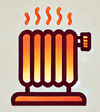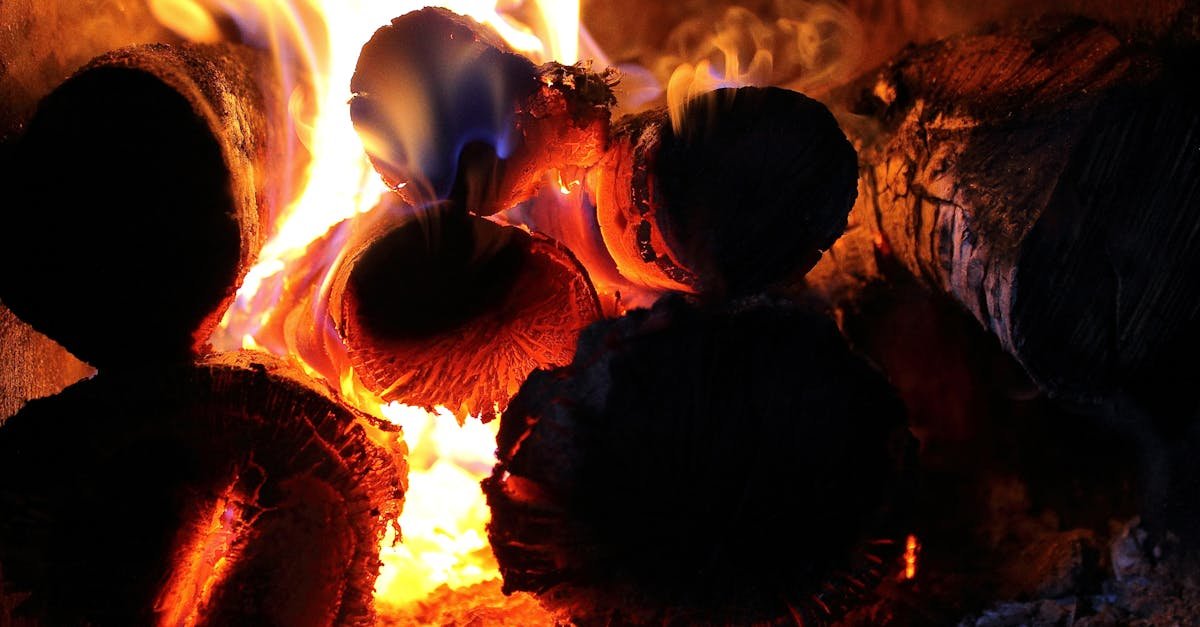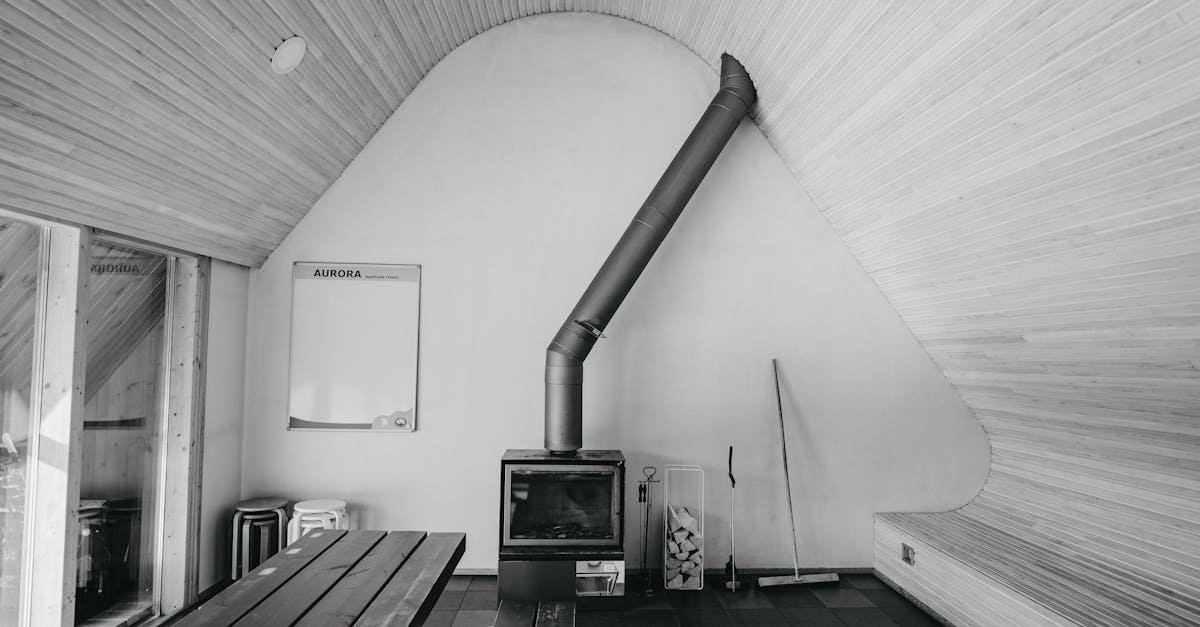To reduce heater noise, start by checking for loose components and tightening any screws or bolts. Insulating ducts and using soundproofing materials can significantly minimize vibrations and echoes. Regular maintenance, like cleaning filters and lubricating moving parts, also helps keep your heater running quietly.
If you’re dealing with persistent noise, consider upgrading to a quieter model or installing a noise-reducing cover. By taking these steps, you can enjoy a more peaceful environment while keeping your home warm and cozy.
Overview of Heater Noise Reduction
Heater noise can disrupt your comfort at home. Reducing this noise improves your living environment. Here are key methods to achieve quieter heating systems.
Sound Enclosures and Barriers
Using sound enclosures helps contain noise. These enclosures should be lined with sound-absorbing materials like fiberglass. Research shows this method can reduce noise transmission by up to 20 dB(A). You might notice a significant drop in noise levels when employing this method.
Barrier Design
Having effective barrier design is crucial. Infinite barriers surrounding equipment on all sides work best. These barriers trap sound effectively. Alternatively, finite barriers and screens can also help. Their efficiency varies based on height and placement relative to the noise source. Adjusting the design ensures maximum noise reduction.
Maintenance Practices
Regular maintenance also plays a crucial role. Checking for loose components and securing screws or bolts minimizes unnecessary vibrations. Insulating ducts can further enhance noise dampening. Implementing soundproofing materials reduces echoes too. These practices ensure your heating system runs smoothly and quietly.
Upgrading Equipment
If noise persists, consider upgrading your heater. Quieter models are now available that operate with reduced sound levels. Installing noise-reducing covers also contributes to a calmer atmosphere. These upgrades create a more peaceful living space, allowing for a better quality of life.
Carry out these strategies for effective heater noise reduction, and enjoy a quieter, more comfortable home.
Common Sources of Heater Noise
Heater noise often disrupts your peace at home. Understanding the sources can help you address the problem effectively.
Mechanical Noises
Mechanical noises are common in HVAC systems. They come from components like fans, pumps, compressors, motors, and control dampers. These sounds can be quite loud. For instance, the operation of fans can generate significant noise. Using sound enclosures or barriers can help reduce this noise. Complete enclosures, lined with materials like fiberglass, can cut noise transmission by up to 20dB(A). This approach can create a quieter environment indoors and outdoors.
Airflow Noises
Airflow noises also contribute to heater noise. These sounds occur when air moves through ducts or registers. Proper duct sizing and sealing can minimize these noises. Using sound-absorbing duct liners can further reduce the impact of airflow noises. Ensuring that the airflow pathways are maintained can lead to a quieter heating system. You can achieve a more comfortable living space by addressing both mechanical and airflow noises.
Techniques for Heater Noise Reduction
Improving the quietness of your heater involves specific techniques. Focus on soundproofing and regular maintenance.
Soundproofing Techniques
Soundproofing effectively reduces heater noise. Use acoustic foam, sound blankets, or compressor soundproof covers. These materials absorb or deflect noise, minimizing sound transmission. Another option is to seal air leaks in the ducts. Gaskets and foam baffles prevent air escape, which cuts down on noise levels. Insulating ducts with rigid foam board or spray foam adds vibration reduction. Upgrade your HVAC system to a newer model when possible. Look for models that feature insulated compressor compartments and advanced fan blades to enhance quiet operation.
Maintenance Best Practices
Regular maintenance keeps your heater running quietly. Check for loose components regularly. Tightening screws, bolts, and other parts prevents rattling sounds. Clean your filters frequently to ensure optimal airflow and reduce noise. Lubricate moving parts to minimize friction and mechanical noise. Consider upgrading to a quieter model if noise persists. A noise-reducing cover or sound enclosure can also help. Remember, consistent maintenance leads to quieter performance and a more pleasant living environment.
Product Recommendations for Noise Reduction
Reducing heater noise in your home involves selecting the right products. Here are some effective options to consider.
Insulation Materials
Insulation materials play a vital role in noise reduction. Use sound-absorbing materials like coconut fibers. Research shows these materials can cut HVAC noise significantly, with one study noting an 11 dBA reduction. Acoustic foam also works well. It absorbs sound and dampens vibrations. Also, flexible duct liners can line air ducts to reduce noise caused by airflow.
Consider installing soundproofing blankets around your heater. These can minimize noise from mechanical components. Increasing insulation around ducts can also help block sound transmission. Use rigid foam board or spray foam for better vibration dampening.
Quiet Operation Models
Opt for quiet operation models when purchasing a heater. Look for units designed with noise reduction features. Many manufacturers now offer models specifically built to operate quietly. Check for models with sound-dampening technology. These often include advanced fans and specially designed motors.
Invest in high-efficiency models. They often operate with less noise compared to older units. Energy Star-rated heaters typically highlight reduced sound levels and efficient operation. Remember, if noise persists, consider upgrading to a newer model that prioritizes quieter performance.
Conclusion
Reducing heater noise not only enhances your comfort but also contributes to a peaceful living space. By implementing the tips discussed like regular maintenance and soundproofing techniques, you can effectively minimize disruptive sounds. Investing in quieter models or utilizing sound enclosures can make a significant difference.
Don’t underestimate the impact of small changes such as tightening loose components or insulating ducts. These simple steps can lead to a more serene environment where you can relax without the constant hum of your heating system. Prioritize these strategies and enjoy the benefits of a quieter home.








